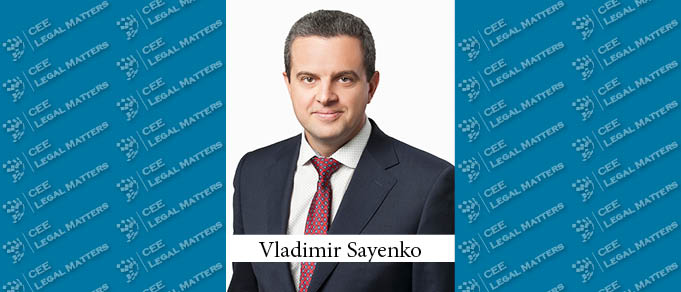The number one priority for Ukrainian firms is to ensure the safety of their employees while dealing with dire economic conditions and making collective efforts to help those in need, according to Sayenko Kharenko Co-Founding Partner Vladimir Sayenko.
"Obviously, life has changed dramatically in Ukraine since February 24, 2022, and the legal sector faces many challenges," Sayenko says. "Despite that, many law firms continue to operate in Kyiv in more or less an ordinary manner. Thus, since the war began, we had to put many measures in place to reorganize our operations and remain prepared for what's to come."
"Among those challenges, of course, our number one priority has been ensuring the security of our employees," he notes. "For example, our law firm had to spread our team apart for security reasons, since our main office is too near the government buildings, primary targets for missile attacks and terrorist groups, and does not have a bomb shelter," Sayenko points out. He adds that, "even after Kyiv was considered safer, we also encourage our people to work from home or in other secure locations so that large groups of employees would not be caught in one place."
"Moreover, a number of our employees are scattered all over Europe," Sayenko notes. "Most of them are on secondments at major international law firms, who have offered their support and invited our lawyers since the beginning of the war. It turned out to be quite easy to collaborate, as expertise in the fields such as competition, M&A, or arbitration is very relevant for our colleagues abroad," he notes. "As our workload increased during the last months, some Ukrainian lawyers are already coming back home."
Sayenko highlights that many Ukrainian law firms struggle to stay on the market. "The economy is not what it used to be, and most law firms barely make ends meet, especially if they rely solely on the local clients that face financial difficulties these days. It's hard to have any profits and preserve teams to continue operations. It is relatively easier for bigger firms with rather diversified practices and an international client base."
As for transactional matters, Sayenko notes that the market is quite unstable. "There is enough work in corporate and M&A – some businesses want to leave the market, some want to restructure, while others don't want to be subsidiary companies of Russian holdings. There are a lot of internal restructuring issues as well. Still, obviously, these are not classic M&A deals," he points out. Additionally, he says that "the banking and finance practice is also busy, as international banks and IFIs continue to provide financings to Ukrainian borrowers, leading to many sovereign deals and restructurings of existing debts."
According to Sayenko, businesses are also adapting to the new reality. "For instance, allocating human resources is a challenge," he says. "If half of the employees have to go to the army simultaneously, the company needs to manage it and find a replacement. To avoid such business interruption risks, companies try to find contracts to supply the military or satisfy other state needs, which helps reserve the necessary employees from mobilization."
"Currently, the economy struggles and the legal market is just a reflection of overall economic conditions," Sayenko notes. "But, eventually, there will be a reconstruction phase – and there will be a need for a lot of capital to rebuild the country and for lawyers to support the process. The government is already thinking about ways to attract foreign investors to reconstruct the country. So, hopefully, we will soon see the light at the end of the tunnel," he concludes.






















